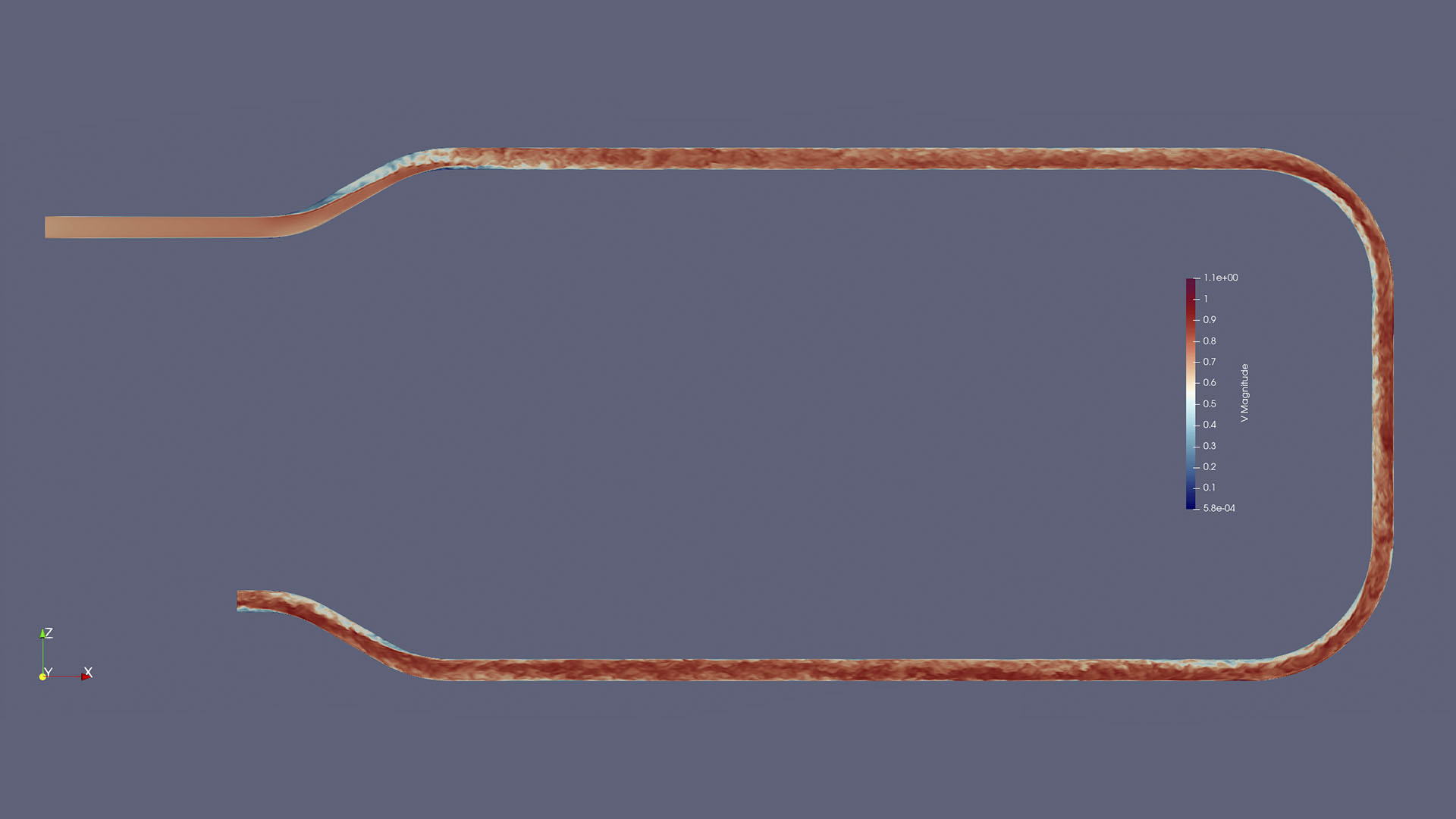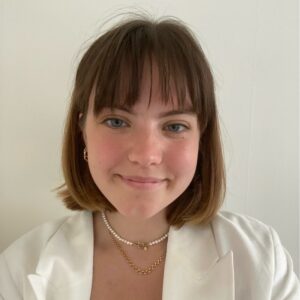
With our mission to bring the best industry solutions through software and consultancy, it is useful to collaborate with academic institutions, researchers, and students to create cutting-edge solutions.
Over the last few months, we’re delighted to have welcomed Elsa Verheul on board with us, working on a nuclear fusion-related CFD project, modelling the water inside the cooling tubes within a fusion reactor, using zCFD, which ultimately will ensure its safety.
 Before Elsa heads off to start her PhD at the University of Manchester, we caught up with her to learn more about her research and nuclear computational fluid dynamics.
Before Elsa heads off to start her PhD at the University of Manchester, we caught up with her to learn more about her research and nuclear computational fluid dynamics.
How did you come to be working at Zenotech?
I have just completed my Master’s in Physics with Industrial Experience at the University of Bristol. Throughout my degree, I focussed on astrophysics and completed my placement year at Airbus Defence and Space, with the Simulations and Modelling department. Through my encouraging team and the exciting work we did together at Airbus – working on a thermal digital twin of a satellite – I gained new programming experience.
When I returned to university to complete my final year, the confidence I gained from my internship led me to join the CIUK Cluster Challenge; a student team event consisting of online and in-person challenges on high-performance computing (HPC). When I returned, I really enjoyed my lectures focusing on plasma physics, and therefore also fluid dynamics, a field in which I had little previous experience.
After we won the CIUK Cluster Challenge, it was really fascinating talking to people in the industry and hearing about all the exciting work being done. I was specifically interested in companies using HPC for scientific research; this is when someone told me about Zenotech. As I thought Zenotech’s projects looked incredibly interesting, I reached out asking if they had any work for me – and now here I am!
Tell us about your PhD research
In September I’ll be starting a nuclear fusion PhD at the University of Manchester. As part of my research, I will be constructing a magneto-thermo-hydrodynamics solver which is capable of capturing the fluid dynamics, magnetic-induction dynamics, and heat transfer during arc-based additive manufacturing processes. This will be geared towards large-scale parallel computation and applied to model welding in stainless steels. Understanding these material properties and behaviours is crucial to ensure future fusion power plant safety.
What have you been doing at Zenotech?
At Zenotech I have also been working on a nuclear fusion project with UKAEA, aligning perfectly with my interests and PhD! I’ve been attempting to model the water inside the cooling tubes within a fusion reactor to investigate whether the cooling tubes will fail from the induced vibrations from the fluid. These cooling tubes are found within the breeding blankets of the fusion reactor, the part in which fuel (tritium) is generated from lithium. The lithium blankets get extremely hot, and hence the water within the cooling pipes behaves very interestingly – its pressure is so high that even though it has a temperature of 321°C, it remains a liquid.
As part of this nuclear computational fluid dynamics project, I’ve been generating a mesh for the pipe and simulating the water with different turbulence models using the incompressible solver. Meanwhile, I’ve also been researching and implementing a thermodynamic relation between the different state variables for this high-pressure and high-temperature water, so that we can run the compressible solver and model it most accurately.
How have you found the experience?
Before joining Zenotech, I had only ever used smoothed particle hydrodynamics; a (mesh-less) computational method used to model hydrodynamic flows, with the possibility of adding effects such as gravity. While this may be used for fluid flows, I used it to simulate planetary collisions as part of my Master’s project (investigating why Uranus is tilted). Therefore, modelling a fluid such as water moving through a pipe was completely new to me when I started.
I have loved working at Zenotech because of this; I have learned a tremendous amount in such a short period, which is to be expected when learning from the best!
While I have loved learning about computational fluid dynamics in general – how flows are modelled, the different turbulence models, how meshes are made, and more – I’ve most enjoyed implementing the new equation of state into the zCFD framework. To do this, I’ve had to use the skills I’ve accumulated throughout the years from both my Physics degree and my time at Airbus. I’ve loved this challenge.
What’s next? What are your post-doctoral plans?
I have no idea – if you told me a year ago that I would be working as a nuclear computational fluid dynamics engineer before starting a PhD in the field of nuclear fusion, I would not have believed you! I am incredibly excited about everything that’s to come, but I also have no clue what to expect. Who knows what I will be doing in four years.
Good luck to Elsa in her PhD research and we’re sure of a bright future ahead.
Discover more about our work with Airbus and check out our other Spotlight On… Interviews with Anne-Lise Scaillierez, CEO of ARPAS-UK and Professor Paola Cinnella.